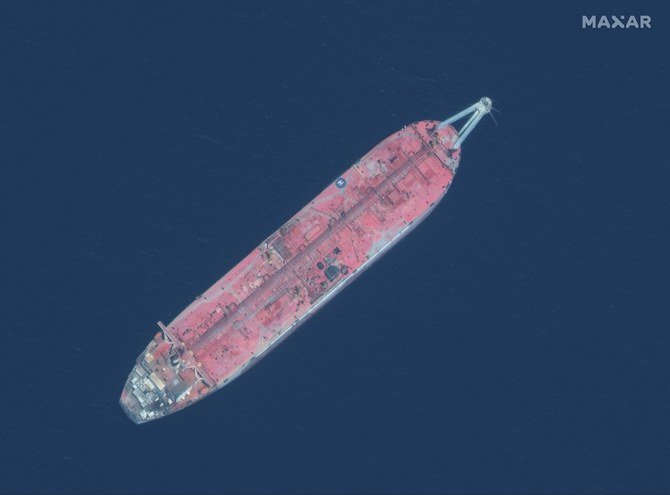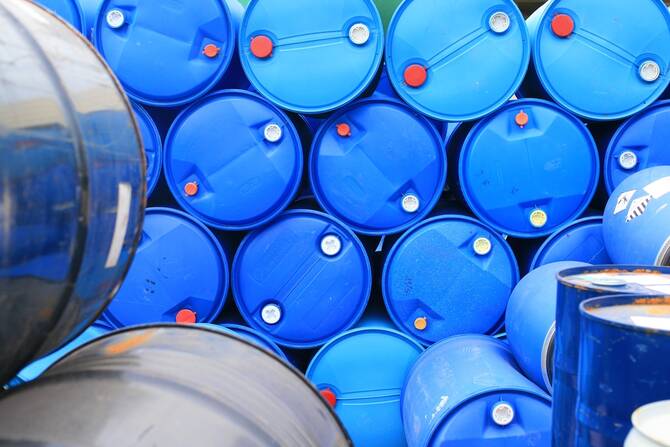Ephrem Kossaify
NEW YORK: A new list of demands from the Houthis relating to “logistics and security arrangements” are causing fresh delays in efforts to send experts to assess the condition of the Safer oil tanker and make emergency repairs, the UN said on Wednesday.
The tanker, which contains about 48 million gallons of oil, has been moored near Ras Issa oil terminal off the coast of Yemen for more than five years. Its condition has deteriorated and the UN has warned it threatens to leak four times as much oil as was spilled during the 1989 Exxon Valdez disaster off the coast of Alaska.
“Unfortunately, we have encountered some new delays after recent additional requests from the Houthis,” said Stephane Dujarric, the UN chief spokesman. “Those additional requests focused on logistics and security arrangements.”
While talks with the Houthis continue in an effort to resolve the issues, it remains uncertain when the mission might be deployed.
“We understand that many member states, including donors to the project, are extremely concerned by these new delays. We, of course, share those concerns,” said Dujarric.
Referring to Houthis’ demands, he added: “We are working as diligently as possible on a field where sometimes the goalposts seem to shift.”
Frustrated is not the right word for how negotiators feel, he said, adding: “I think ‘increased worry’ is the right expression. We’ve been talking about this for two years now.
“By the grace of God, there has not been a major leak. The more we wait, the chances of a major leak are increasing. Time is not on anyone’s side.
“If there was a major leak, first of all, the ports around Hodeidah would be closed. Hodeidah is a major lifeline for that area of Yemen in terms of importing food and commercial goods.
“One can only imagine the devastating ecological impact it would have on the region and on countries surrounding Yemen (and) bordering the Red Sea, whose population rely on the Red Sea for fishing and for tourism.”
UN Secretary-General Antonio Guterres and the Security Council have repeatedly called on the Houthi militia in Yemen to grant access to the tanker for assessment and repairs.
“The mission will give us the assessment we need to formulate a permanent solution. It is already two years too late and cannot not be stalled any longer,” said Dujarric.
“This is not a matter of just sending UN staff to an area. This is having to procure highly specific and technical equipment, including a tugboat and a barge and people with very, very pointed experience who are able and willing, from a private sector company, to go on this first assessment mission.”
Asked whether enforcement action under Chapter 7 of the UN Charter — which provides a framework for the Security Council to act in response to threats to peace and acts of aggression, or to prevent the aggravation of a situation — might be considered if the goalposts continue to shift, Dujarric said such action would be up to the Security Council. He added that the secretary-general’s focus remains on working with the support and agreement of the de facto authorities.
“We want — and this not only applies to the tanker but to everything that is going on in Yemen — that all those who have power in Yemen put the interests of the Yemeni people first,” Dujarric added. “This includes trying to fix the tanker. This includes stopping the fighting. This includes facilitating humanitarian access.”






















